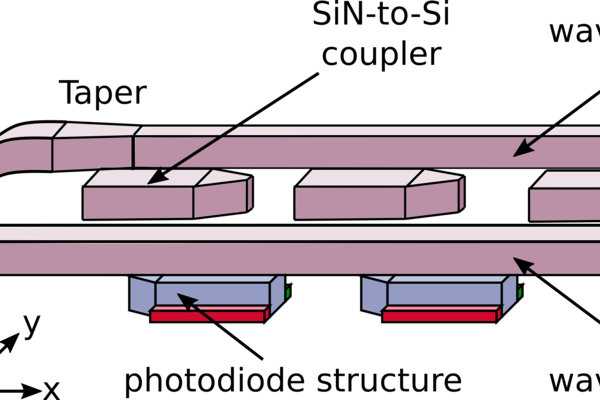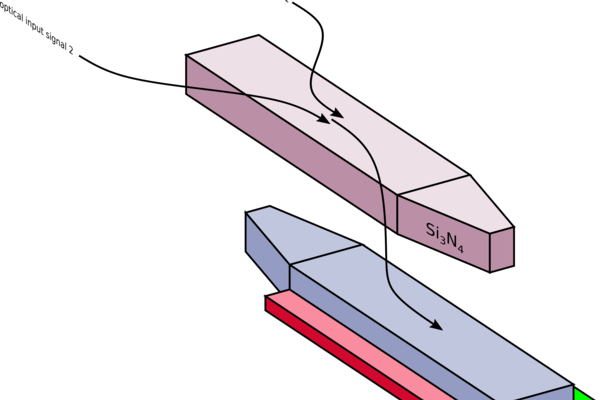EPIC spectrometer - Scalable, monolithically integrable Fourier-transform spectrometer
Ref.-No. 6479
Keywords: Spectrometer, lab-on-chip, monolithic integration, silicon photonics, Raman spectroscopy
The new technology from Paderborn University can be used to implement a scalable, monolithically integrable Fourier-transform spectrometer with the necessary coupling structures, an on-chip direct reception, and an NDFT (non-uniform discrete Fourier transform) signal processing unit completely integrated into the chip, making the entire system much smaller and more robust.
The invention allows spectral analysis in the 400 to 2000 nm wavelength range by coupling the measuring signal directly into an optical input. A downstream optical splitter splits the optical signal into two waveguides with different optical properties. Optical couplers positioned between the two waveguides and in which the light from the two waveguides interfere route the resulting light signal to one photodiode for each signal (see Fig. 2). The photodiodes convert this resulting optical signal into an electrical signal. A downstream electronic evaluator uses NDFT to calculate the input signal’s optical spectrum, thus providing spectral analysis in the visible and infrared ranges.
Competitive Advantages
- Complete chip integration
- CMOS-compatible (<100 nm)
- Low optical losses
- Suitable for Raman spectroscopy
- Scalable FT spectrometer
- Large optical range (400-2350 nm)
Commercial Opportunities
This technology is aimed at analysis device manufacturers that manufacture and sell optical spectroscopic measuring devices such as Raman spectroscopes for analysis in the chemical or food industries. This method can also be used for water quality and blood analysis in medical technology.
Current Status
Initial simulation results are now available and confirm the measurement procedure’s functionality. There is also an initial chip layout. A German patent application has been submitted to the German Patent and Trade Mark Office. Within the priority year, other applications can be submitted abroad. We are offering interested companies the opportunity to license and refine the technology in collaboration with the inventors and Paderborn University.
Technology Readiness Level
1
2
3
4
5
6
7
8
9
Experimental proof of concept
Relevant Puclications
Publications are planned for the third quarter of 2023.
—
An invention of Paderborn University.




